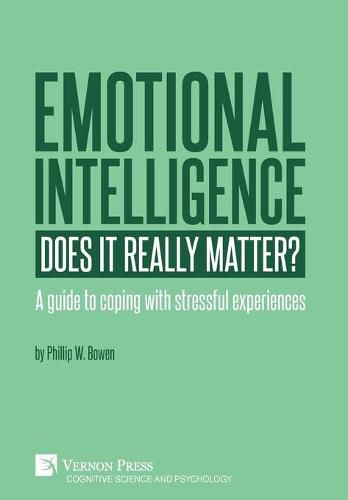Readings Newsletter
Become a Readings Member to make your shopping experience even easier.
Sign in or sign up for free!
You’re not far away from qualifying for FREE standard shipping within Australia
You’ve qualified for FREE standard shipping within Australia
The cart is loading…






This title is printed to order. This book may have been self-published. If so, we cannot guarantee the quality of the content. In the main most books will have gone through the editing process however some may not. We therefore suggest that you be aware of this before ordering this book. If in doubt check either the author or publisher’s details as we are unable to accept any returns unless they are faulty. Please contact us if you have any questions.
What really is emotional intelligence? This book, aimed primarily at the university academic and those working and/or studying in higher education, seeks to help readers understand the term and the role emotional intelligence plays in education and business. It clearly identifies and critiques the three main models: the ability model (Salovey and Mayer), the mixed Model (Goleman, Bar-On) and the trait model (Petrides and Furnham). It discusses eustress, distress and chronic stress, reflecting on the effects negative types of stress can have on the human body, demonstrating how the modern workplace can lead to burnout. It emphasizes the importance of a healthy work/life balance while acknowledging the demands and pressures placed on organisations to compete within the global marketplace.
It also explores how one may understand and process emotions, considering terms such as learned optimism and learned helplessness . Room for discussion is also given to the influence of bullying and harassment in the workplace and types of therapy that are presently available. It discusses strategies for coping with challenging experiences, providing anecdotes and case studies from university academics. It also considers how personality relates to emotional intelligence and how people cope with challenging experiences. The book delves into the term intelligence , showing how theories surrounding the concept have developed over the twentieth century; and it elucidates the link between emotional intelligence and wellbeing. The author discusses the effect stress can have on human telomeres (thus shortening lifespan) and sheds light on the darker sides of human nature, such as the so-called dark triad personality traits (psychopathy, narcissism and Machiavellian behaviour).
Overall, the book is dedicated to the vital question: Emotional intelligence: does it really matter?
$9.00 standard shipping within Australia
FREE standard shipping within Australia for orders over $100.00
Express & International shipping calculated at checkout
This title is printed to order. This book may have been self-published. If so, we cannot guarantee the quality of the content. In the main most books will have gone through the editing process however some may not. We therefore suggest that you be aware of this before ordering this book. If in doubt check either the author or publisher’s details as we are unable to accept any returns unless they are faulty. Please contact us if you have any questions.
What really is emotional intelligence? This book, aimed primarily at the university academic and those working and/or studying in higher education, seeks to help readers understand the term and the role emotional intelligence plays in education and business. It clearly identifies and critiques the three main models: the ability model (Salovey and Mayer), the mixed Model (Goleman, Bar-On) and the trait model (Petrides and Furnham). It discusses eustress, distress and chronic stress, reflecting on the effects negative types of stress can have on the human body, demonstrating how the modern workplace can lead to burnout. It emphasizes the importance of a healthy work/life balance while acknowledging the demands and pressures placed on organisations to compete within the global marketplace.
It also explores how one may understand and process emotions, considering terms such as learned optimism and learned helplessness . Room for discussion is also given to the influence of bullying and harassment in the workplace and types of therapy that are presently available. It discusses strategies for coping with challenging experiences, providing anecdotes and case studies from university academics. It also considers how personality relates to emotional intelligence and how people cope with challenging experiences. The book delves into the term intelligence , showing how theories surrounding the concept have developed over the twentieth century; and it elucidates the link between emotional intelligence and wellbeing. The author discusses the effect stress can have on human telomeres (thus shortening lifespan) and sheds light on the darker sides of human nature, such as the so-called dark triad personality traits (psychopathy, narcissism and Machiavellian behaviour).
Overall, the book is dedicated to the vital question: Emotional intelligence: does it really matter?